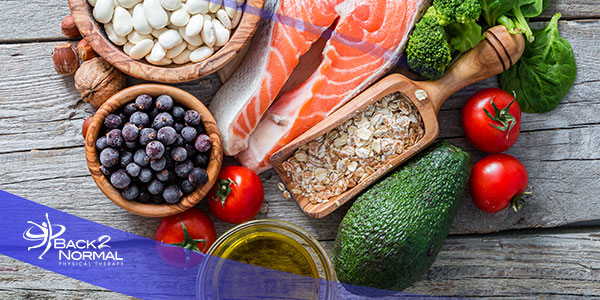
Almost all of us know someone who has been affected by heart disease at some point. In honor of American Heart Month, we’re sharing a list of BEST and WORST foods for heart health, along with research-backed reasoning to help you prioritize your nutrition – for the LOVE of your heart and your whole body!
BEST Foods for Heart Health
Gluten-Free Whole Grains
Some research has also found that gluten-free whole grains could be beneficial for your heart. Top sources include oats, brown rice, wild rice, buckwheat, quinoa, millet, teff, sorghum and corn (yes, corn is technically a grain).
- For best results, swap out your refined bread and pasta for nutrient-rich options like quinoa or brown rice, and be sure to pair it with heart-healthy fats, plenty of veggies and protein to make it a delicious heart-healthy meal.
- Always prioritize non-GMO, and preferably organic to avoid toxic pesticides and franken-foods.
- What does GMO stand for? A GMO is a genetically modified organism. These living organisms contain genetic material that has been artificially manipulated in a laboratory through genetic engineering.
- Why are GMOs bad? Since they are still relatively new to human consumption, GMO foods dangers are still continuing to be discovered. Some of the possible GMO foods health risks, according to the Center for Food Safety, are allergic reactions, antibiotic resistance, cancer, loss of nutrition, and toxicity. 92% of corn, 94% of soybeans and 94% of cotton produced in the U.S. were genetically modified strains as of 2015.
Wild-Caught Salmon
Full of beneficial omega-3 fatty acids, fatty varieties of fish like wild-caught salmon pack in a powerful punch when it comes to heart health. Studies show that omega-3 fatty acids can relieve inflammation, decrease triglyceride levels, lower blood pressure and reduce the risk of stroke. Other top choices include wild-caught varieties of mackerel, herring, sardines, and anchovies.
Walnuts
According to one study published in the Journal of Nutrition, walnuts have been shown to reduce “bad” LDL cholesterol by up to 16% and also drop blood pressure. They may also help improve blood vessel function, decrease certain markers of inflammation and reduce oxidative stress.
Leafy Green Vegetables
Greens like spinach, kale, collard greens and chard are powerhouses of nutrition. They’re nutrient-dense foods, meaning that they supply tons of vitamins and minerals per serving, like vitamin K, vitamin A, folate, magnesium, potassium and iron. They’re also high in beneficial antioxidants that can help fight free radicals, prevent cell damage and slow the development of chronic disease. Always prioritize organic when purchasing leafy greens.
Avocados
Avocados an excellent source of heart-healthy fats, plus other important nutrients like potassium, vitamin E and vitamin K. A 2015 study published in the Journal of the American Heart Association showed that including one avocado per day as part of a moderate-fat diet could help lower cholesterol levels, potentially reducing the risk of heart disease.
Organic Berries
Research shows that eating more berries could help protect against metabolic syndrome, inflammation and neurological conditions like Alzheimer’s – and are brimming with heart-healthy antioxidants that help fight off free radicals and prevent disease. Higher berry consumption leads to reductions in bad LDL cholesterol levels, blood pressure, body weight and inflammation.
WORST Foods for Heart Health
In the simplest of terms – avoid PROCESSED foods. More specifically, eliminate the following foods from your diet to improve heart health and prevent the occurence of the most common heart health issues.
Refined Carbohydrates
Unfortunately, refined carbs make up a large majority of the modern Western diet and may be linked to a higher risk of heart disease. Refined carbohydrates can be found in a wide variety of foods, including breads, pastas, muffins, cakes, cookies, crackers, bagels, etc.
Soda
Besides being laden with chemicals and unhealthy ingredients, soda is also overflowing with added sugars. Sugar is one of the main culprits of heart disease. Added sugars can spike blood sugar levels, damaging the blood vessels, overloading the liver and amping up the risk of heart disease.
Margarine
Margarine is usually high in trans fats, an inflammatory type of fat often used by food manufacturers to enhance the flavor of foods and lengthen shelf life… at the cost of your health. Opt for grass-fed organic butter or ghee instead of margarine, or non-dairy fats such as olive oil, coconut oil and avocado oil. Limit other sources of trans fats, as well, often found in packaged and processed foods.
Follow A Heart Healthy Diet
Following a heart-healthy diet doesn’t have to be difficult or time-consuming. The majority of your diet should consist of unprocessed, whole foods. When you’re grocery shopping, stick to the outer sections of the store and avoid the middle aisles where the heavily processed junk foods are often in located. Be sure to also opt for healthy fats when you’re cooking or baking. Skip the vegetable oils, margarine and shortening; and choose nutrient-rich coconut oil, extra-virgin olive oil, butter or ghee instead. If this all seems overwhelming, start by making one small change each week, and you’ll work your way up to a healthy, well-rounded diet at your own pace.
Ready to optimize your diet & lifestyle with one of our trained & trusted professionals? We offer a wellness-focused & supportive environment that can help you achieve your goals. Be sure to check our social media and blog updates for regular wellness inspiration, information, offers and support.
Contributing Author: Jillian Warwick, Certified Nutritional Therapy Practitioner & Registered Yoga Teacher
The Back 2 Normal blog is an educational resource written by Back 2 Normal employees and professional associates. Back 2 Normal bloggers are professionals who abide by the code of ethics outlined by their respective professional associations. The content published in blog posts represents the opinion of the individual author based on their expertise and experience. The content provided in this blog is for informational purposes only, does not constitute medical advice and should not be relied on for making personal health decisions.





